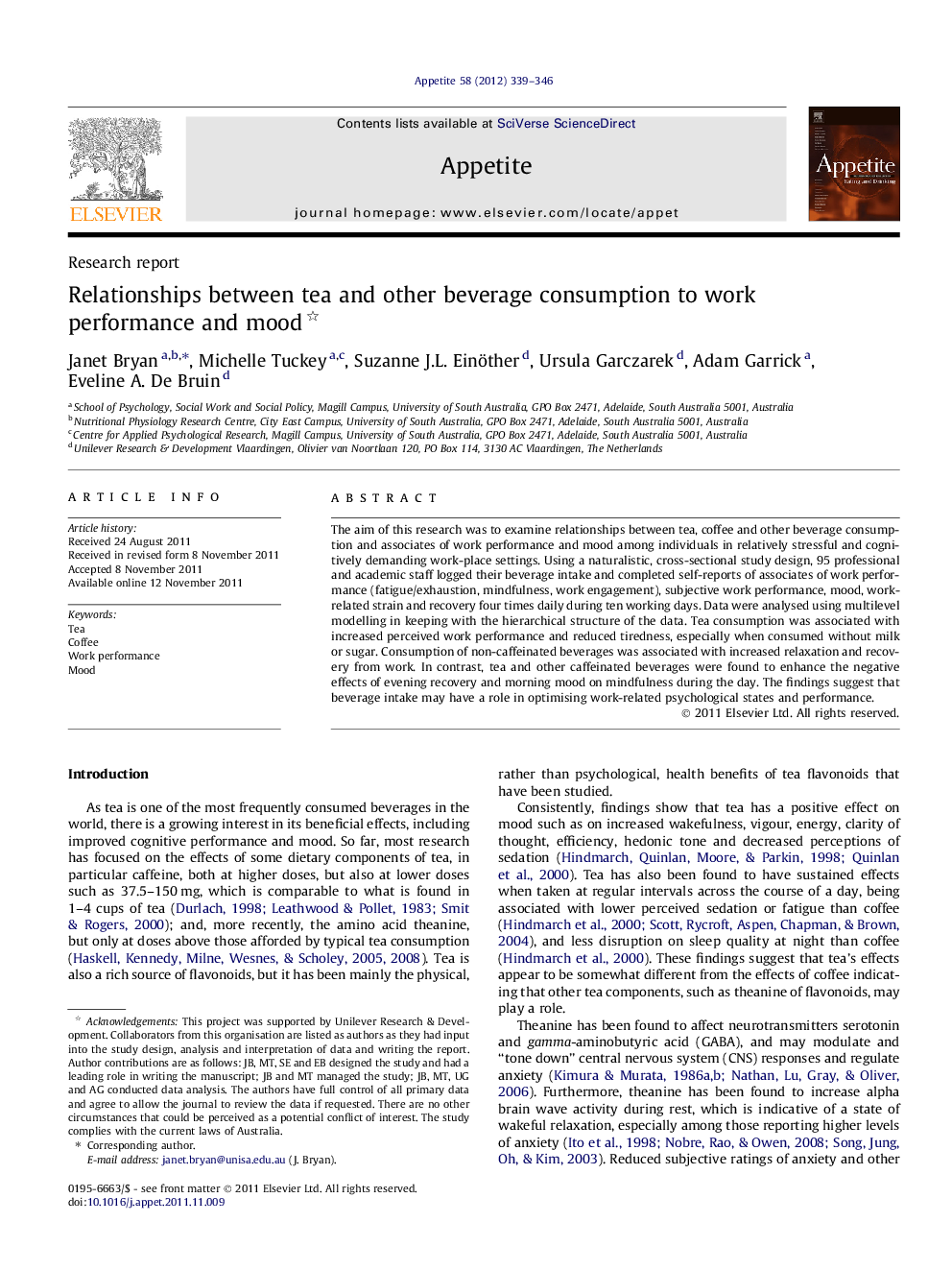| Article ID | Journal | Published Year | Pages | File Type |
|---|---|---|---|---|
| 940364 | Appetite | 2012 | 8 Pages |
The aim of this research was to examine relationships between tea, coffee and other beverage consumption and associates of work performance and mood among individuals in relatively stressful and cognitively demanding work-place settings. Using a naturalistic, cross-sectional study design, 95 professional and academic staff logged their beverage intake and completed self-reports of associates of work performance (fatigue/exhaustion, mindfulness, work engagement), subjective work performance, mood, work-related strain and recovery four times daily during ten working days. Data were analysed using multilevel modelling in keeping with the hierarchical structure of the data. Tea consumption was associated with increased perceived work performance and reduced tiredness, especially when consumed without milk or sugar. Consumption of non-caffeinated beverages was associated with increased relaxation and recovery from work. In contrast, tea and other caffeinated beverages were found to enhance the negative effects of evening recovery and morning mood on mindfulness during the day. The findings suggest that beverage intake may have a role in optimising work-related psychological states and performance.
► Tea associated with increased work performance and reduced tiredness. ► Non-caffeinated beverages associated with increased relaxation and recovery from work. ► Tea and other caffeinated beverages enhanced negative effects of evening recovery on mindfulness. ► Beverage intake may have a role in optimising work-related psychological states and performance.
